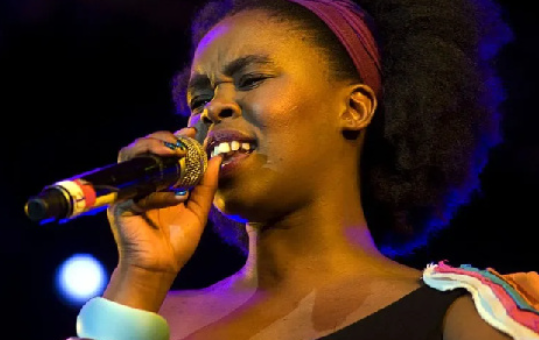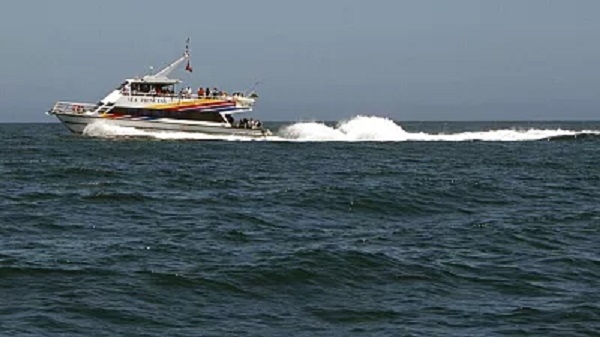SA opens Africa’s first military-focused AI hub

ITWeb first reported on the imminent launch of the AI hub at the South African Military Academy last month.
On Friday, communications minister Mondli Gungubele officially launched the Defence Artificial Intelligence Research Unit (DAIRU) at the academy in Saldanha Bay, Western Cape.
DAIRU is the fourth hub to be added, after the launch of others at the University of Johannesburg (UJ) in 2022, Tshwane University of Technology (TUT) in 2023 and the Central University of Technology in February.
The DAIRU hub, according to the minister, is the first of its kind on the African continent.
The new hub is a collaborative effort between Gungubele’s Department of Communications and Digital Technologies (DCDT) and Department of Defence and Military Veterans.
According to the DCDT, DAIRU aims to harness the “transformative” power of AI to elevate South Africa’s defence sector, ensuring the country keeps up with the pace of utilising cutting-edge technology to maintain strategic advantage and national security.
The two departments, having realised the importance of technological-led AI development and application, devised a process to launch the defence AI hub to focus on military uses of AI, automation and robotics, said Gungubele.
“As a democratic state, we wholly support the belief that AI is key to groundbreaking socio-economic development for the country.
“The launch of this Defence Artificial Intelligence Research Unit is not simply a bureaucratic ritual with little to no significance or practical impact. We have held numerous public events around 4IR [the fourth industrial revolution], all of them setting the tone in educating and promoting this new technology among South Africans.
“As we meet today, we take an important step towards a future that benefits our country through AI, positioning ourselves strategically as a country to be reckoned with and as a viable trading
in a globally connected future.”
Artificial intelligence continues to grow in importance worldwide, with the United Arab Emirates appointing an AI-dedicated minister to lead that nation’s AI strategy. This prompted SA businessman Andile Ngcaba to call for a similar post locally.
Last year saw unprecedented AI advancements, with a wide range of tools, solutions and industries adopting the technology. The launch of OpenAI’s ChatGPT in November 2022 brought to public attention the power of generative AI. Since then, Google’s Gemini Pro, Microsoft’s Bing AI and Elon Musk’s xAI have been introduced, showcasing generative AI’s evolution.
Most recently, Facebook owner Meta kicked off its AI push through its chatbot embedded across its social media platforms – Instagram, WhatsApp, Messenger and Threads.
In South Africa, the launch of the AIISA institutes signals the realisation of one of the recommendations of the Presidential Commission on the Fourth Industrial Revolution, to catapult the country’s digital future.
The hubs are expected to serve as a common base for knowledge generation, research and development, as well as implementing the capabilities of AI applications for health, agriculture, finance, mining, manufacturing and government.
Each hub is linked with an economic sector that can be enhanced through AI and a series of catalytical projects.
For example, the UJ hub focuses on the value chain of manufacturing, retail, fintech, digital mining, the energy sector, digital
and identity, as well as the criminal justice system.
The TUT hub is linked to automotive, farming and food production, 4IR manufacturing, tourism, health, transportation and telecommunications.
Gungubele revealed the purpose is to ensure sectors such as water and waste management, the just energy transition, built environment, health, telecoms, media and languages also have AI hubs.
AI in defence targets
The minister said emerging technologies, including AI, are now the focal points of geopolitical competition, with nations like China, Russia and the US aggressively exploring the military applications of AI.
The rapid pace of technological innovation, coupled with the rise of Asia as a global trade hub, necessitates a re-evaluation of national
strategies, he noted. AI, akin to electricity or fossil fuels, has the potential to redefine modern militaries and reshape the global balance of power, he added.
“The convergence of physical, digital and biological technologies heralds the onset of a significant technological revolution. Governing these emerging technologies at a global level is imperative to mitigate the risks of future conflicts.
“As AI technologies become increasingly integrated into the world’s militaries, establishing clear guidelines and risk-reduction measures will be crucial to ensure global peace and security.
“The national defence policy review underscores government’s focus on technology, with a significant budget allocation for defence technologies aligned to AI development and research.
“AI, with its vast applications, is set to bring about a structural transformation in national security. The defence review envisions this transformation and emphasises the need for a proactive approach to harness the potential of AI in defence and security.”
The minister noted it’s expected there will be an exponential rise of AI in military applications over the next decade. The military is seeking to integrate AI into weapon systems development to enhance precision, as well as augment human operators with AI-driven robotic manoeuvres on the battlefield.
AI already has deep impacts on nuclear armament, cyber and information warfare, biotechnologies and aerospace, he commented.
“The AI systems and applications combined with software are also expected to bring about an adversarial AI arms-race.
“AI supports long-term defence capability planning processes in the military through the development of analytical solutions, including supporting complex decision-making by assessing complex factors.”
Source: Thepressradio.com





